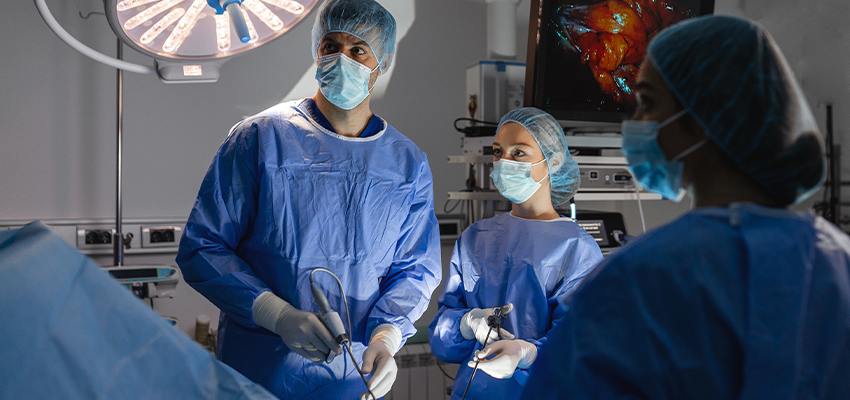Gastric bypass surgery is a highly effective weight loss procedure that helps individuals struggling with obesity achieve significant and sustained weight loss.
Gastric Bypass is one of the most commonly performed procedures in bariatric surgery in the world. It is mostly preferred by people who cannot lose weight as a result of a strict diet and exercise. In addition, patients who have serious health problems also want to have this operation.
Gastric Bypass Surgery: Candidates
Gastric bypass surgery is recommended for patients with a body mass index (BMI) of 40 or higher, or those with a BMI of 35 or higher with obesity-related health conditions. Candidates for this surgery usually include individuals who:
- Have not achieved successful weight loss through non-surgical methods such as diet and exercise
- Suffer from severe obesity that poses significant health risks
- Are committed to adopting a healthy lifestyle after the surgery
Benefits and Considerations of Gastric Bypass Surgery
Gastric bypass surgery has several benefits for individuals struggling with obesity. This procedure can result in significant weight loss, with many patients achieving a loss of 60-80% of their excess body weight within the first year.
The practice often leads to the improvement or resolution of obesity-related health conditions, including type 2 diabetes, high blood pressure, sleep apnea, and joint pain.
On the other hand, gastric bypass alters the digestive system, reducing the production of the hunger hormone ghrelin. This can help patients feel less hungry and experience better appetite control.
With proper lifestyle changes and adherence to post-surgery guidelines, patients can maintain their weight loss over the long term.
While the practice offers numerous advantages for patients, it is important to be aware of the potential complications and considerations associated also.
One of the most important ones is rapid weight loss. This can be seen after gastric bypass surgery and it can increase the risk of developing gallstones. The surgeon may recommend the removal of the gallbladder during the surgery or prescribe drugs to reduce the risk.
Besides that, if the patient is planning to become pregnant after gastric bypass surgery, it is important to consult with their surgeon. Rapid weight loss and changes in nutrient absorption can affect also fertility and pregnancy outcomes. The specialist guides the person on the appropriate timing and precautions to take.
Gastric Bypass Surgery: Procedure Steps
Gastric bypass surgery is usually performed using minimally invasive techniques, which involve making small incisions in the abdomen. The procedure includes the following steps:
- Creation of a Small Pouch: The surgeon divides the stomach into two sections, creating a small pouch at the top. This pouch will serve as the new, smaller stomach.
- Rerouting of the Small Intestine: The surgeon then attaches a section of the small intestine directly to the small pouch. This bypasses a portion of the stomach and upper small intestine.
- Reconnection of the Intestine: The bypassed section of the small intestine is reconnected further down the digestive tract, allowing digestive juices to mix with food again.
The procedure alters the anatomy of the digestive system, reducing the amount of food the stomach can hold and altering the way nutrients are absorbed.
Gastric Bypass Surgery: Recovery Process
After gastric bypass surgery, a period of recovery and adjustment is necessary. The patients should follow their surgeon's aftercare recommendations for a fast recovery.
Most patients stay in the hospital for 2 to 3 days following the surgery. During this time, medical staff will closely monitor the person's condition and provide the necessary support.
Following the surgery, the patients should take a liquid diet initially, gradually transitioning to pureed foods and then solid foods. The dietitian provides specific dietary guidelines to follow.
Patients should stay away from heavy physical activities for a while. In this process, they can take short walks with the recommendation of the doctor.
During the recovery period after Gastric Bypass, it is very important to go to follow-up examinations on the dates determined by the doctor. In these controls, the specialist examines the patient's recovery process and can address their concerns.
Health International team, which performs the most successful weight loss surgeries, closely follows all the innovations in the field of Bariatric Surgeries. Contact us for detailed information on procedures.

